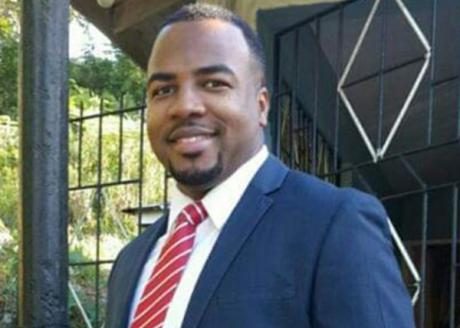Don’t Forget To Apply For Death Certificate – RGD
By: , May 20, 2022The Full Story
The Registrar General’s Department (RGD) is imploring Jamaicans not to overlook the importance of obtaining a death certificate as a critical step in settling the affairs of loved ones who pass away.
A death certificate is a legal document, which declares that a person is officially deceased. It is useful in handling the deceased’s estate, such as transfer of property through inheritance and/or insurance matters.
Speaking with JIS News, Chief Executive Officer (CEO) of the RGD, Charlton McFarlane, says that in addition to registering the death, persons must also apply for the death certificate.
“It may be required by entities for settling matters relating to insurance, retirement benefits and for personal family records. We are, therefore, asking persons not to wait until the certificate is needed to begin the application process,” he advises.
To apply for a death certificate the applicant will need the death entry number which can be found on the Burial Order, the name of the deceased, date of death, and the place of death.
Applications may be submitted through the RGD’s website at www.rdg.gov.jm. Submissions can be made by a next of kin, an adult present at the time of death or the person responsible for the burial or cremation.
Mr. McFarlane tells JIS News that persons should not hesitate to register deaths as it is unlawful to do so.
He shares that “the law of Jamaica requires all deaths to be registered within five days, unless the death is being probed by the Coroner, and no later than 12 months. If a death is not registered within 12 months, permission from the RGD is needed to conduct a Late Registration of Death”.
The CEO adds that the registration process will vary dependent on the classification of death – natural, sudden, or violent.
“In the case of a natural death, if it did not occur at a hospital, the police must be notified by a relative or individual present at the time of death. The death can also be registered by the person who has responsibility for the burial or cremation. Upon registration, the police will do an investigation to determine the circumstances of the death,” he explains.
“If no foul play was suspected, the police will instruct the family to obtain a Medical Certificate of the Cause of Death (MCCD) from the medical doctor. If the deceased was seen three months prior to the death, a letter is needed by the police to be taken to the medical doctor,” he further outlines.
For natural deaths that occurred in a hospital or other medical facility, the person responsible for the burial or cremation must obtain a signed MCCD from the attending physician. Once the signed MCCD is issued, the person responsible for the burial or cremation should present it to the Local District Registrar (LDR) at the RGD.
The person registering the death should provide the name of the deceased, his or her age at last birthday, occupation, marital status, address, parish of birth, usual residence within the last six months, birth certificate and or other identification.
Registrations done within 12 months of the death will attract a fee of $200 and $300 for registrations done after 12 months.
Following registration, a Burial Order will be issued to permit burial or cremation.
The CEO tells JIS News that all Burial Orders must be signed by a Minister of Religion or the person performing the burial rites for the death certificate to be obtained from the RGD. Section C of the Burial Order must be returned to the RGD for statistical purposes.
In the case of a sudden or violent death, a relative or other person present at the time of death, or the person responsible for the burial or cremation must inform the Police and arrange for a post-mortem examination or autopsy to be done by a medical examiner before the death is registered.
The police will then issue the post-mortem report or refer the matter to the Coroner’s Court if further investigation is needed. The police may also issue a Burial Order. Once all examinations are concluded, a Certificate of Coroner (Form D) will be issued to the RGD for the registration of the death.
Mr. McFarlane says that the RGD offers regular and express services for obtaining certificates.
“Certificates needed within three to four business days will attract a fee of $4,000; $2,500 for certificates needed within seven to 10 working days; and $1,500 if the certificate is to be collected within four to six weeks,” he outlines.
The certificates may be collected at any of the nine RGD locations across the island based on the registrant’s preference. Each additional copy of the certificate will attract a cost of $500.
The RGD is an Executive Agency and Jamaica’s sole repository of birth, death, marriage, and foetal death records. It is also the sole organisation in Jamaica for registering those vital events.




